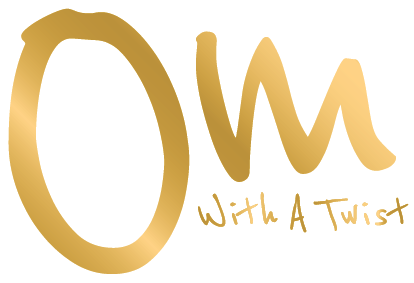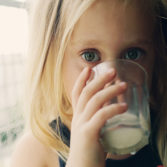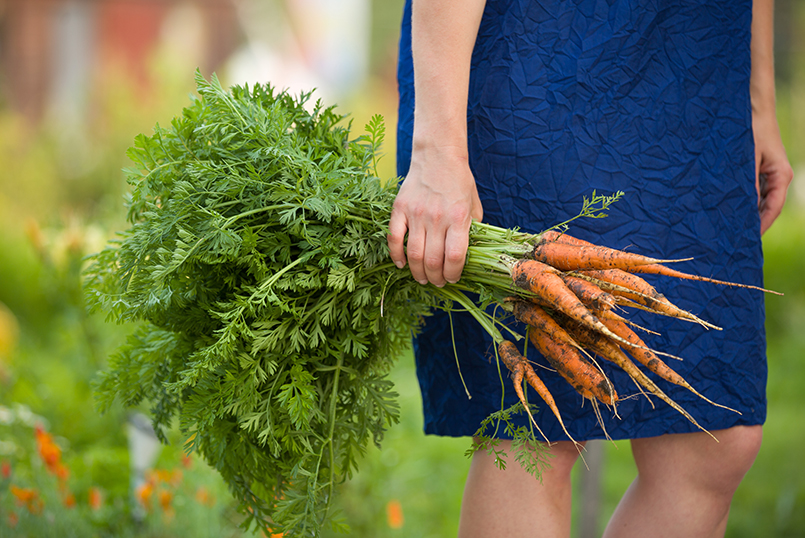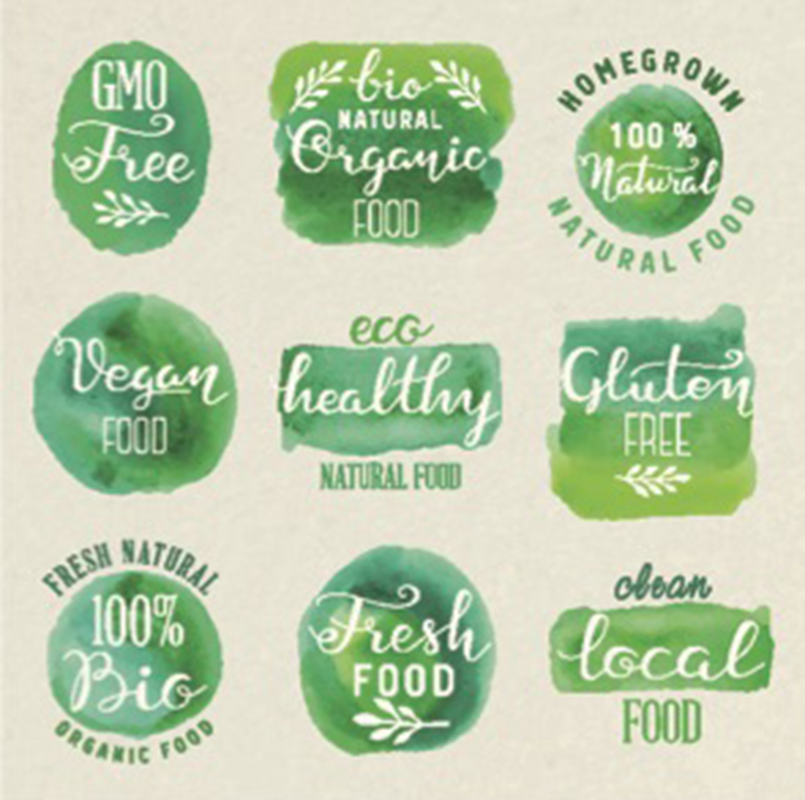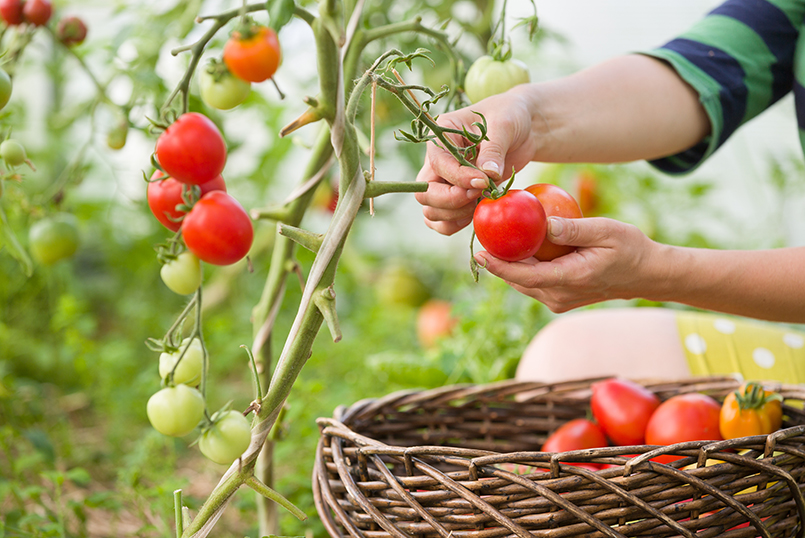So, what exactly is organic food?
What is Organic Food? Why is it important to eat organic food?
And my “must-have-organic” food list!
The definition of organic food varies from country to country, but generally speaking, organic produce or any food labeled as “certified organic” is either grown or made of ingredients that are grown without the use of pesticides, synthetic fertilizers, dyes, sewage sludge, genetically modified organisms and ionizing radiation. Animals that produce organic meat, poultry, eggs, and dairy products are grown without antibiotics and growth hormones.
The USDA National Organic Program (NOP) defines organic as follows:
“Organic food is produced by farmers who emphasize the use of renewable resources and the conservation of soil and water to enhance environmental quality for future generations. Organic meat, poultry, eggs, and dairy products come from animals that are given no antibiotics or growth hormones. Organic food is produced without using most conventional pesticides, fertilizers made with synthetic ingredients, sewage sludge or ionizing radiation. Before a product can be labeled “organic”, a Government-approved certifier inspects the farm where the food is grown to make sure the farmer is following all the rules necessary to meet USDA organic standards. Companies that handle or process organic food before it gets to your local supermarket or restaurant must be certified, too.”
So you must understand that when you support an organic food label you are making a conscious choice to not only feed yourself and your family healthy food, but you are also making the choice to support the environment!
It is important to note that many marketing companies try to slip through the cracks by using labels like “Natural”, “Pure” or “Non-GMO” which doesn’t really mean that the food is “Organic”.
Now here’s the reality, buying organic can get really pricey! This is partly because it is not available everywhere and also because it does cost more to grow organic produce, meat or daily compared to conventional food. So if you start buying everything from vegetables to toilet paper at an organic store it might add up and become too expensive. I usually split up by groceries between several different stores, but there are certain foods that I have to buy organic.
Here is a list of foods that I non-negotiability buy organic:
 1. Dairy Products
1. Dairy Products
This includes milk (cow, buffalo, goat), butter, cheese, yogurt, ice cream and whey protein! Majority of dairy cows are treated with artificial hormones to stimulate milk production. This treatment changes the natural hormones in the cow’s milk and has been linked to breast cancer and other diseases. These cows are also injected with heavy doses of antibiotics that remain in the milk and cause antibiotic resistance in people! Also, lets not forget the pesticide and herbicide filled crops these cows are grassing on. All this ultimately finds its way in the diary. Always buy organic dairy products!
2. Vegetables
Celery, Capsicum, Potatoes, Cucumbers, Tomatoes, Snap Peas, Kale, Collard Greens and Spinach are the most contaminated vegetables and have the highest amount of pesticides. Always buy them organic.
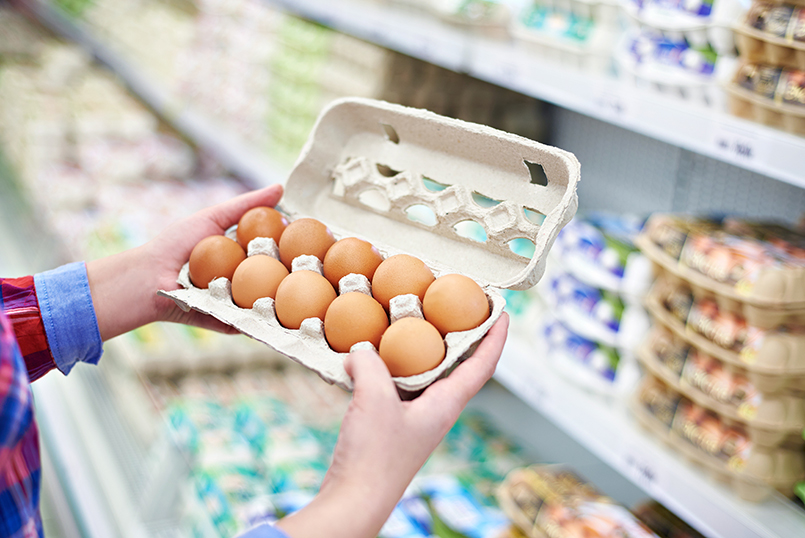 3. Meat and Poultry:
3. Meat and Poultry:
If you eat chicken, eggs, beef or pork, you need to buy organic. A lot of non-organic meat and poultry is fed with growth hormones that can cause major health problems in people. These animals also receive a massive does of antibiotics, which can lead to antibiotic resistance in people. Many of the antibiotics, pesticides and synthetic preservatives use in non-organic foods have been classified by researchers as “Obesogens”. The theory is that the obesogens found in the food we are eating are making us store excess fat!
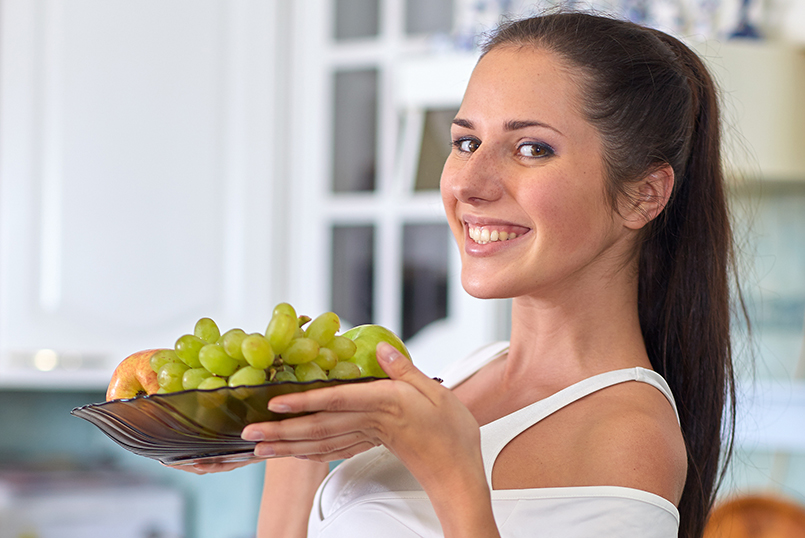 4. Fruits
4. Fruits
Berries (including Strawberries, Blueberries and Raspberries), Grapes, Apples, Peaches, and Cherries should be eaten organic. These are all treated with multiple pesticides and eaten skin-on. No matter how well you wash them, some pesticides will stay on that skin.
Now, this is my basic, non-negotiable list of foods that I have to buy organic! But if your budget allows you, I highly recommend sticking to organic food as much as possible! Also consider buying organic house cleaners and skin products whenever possible!
If you do not have an organic store were you are living, look for a local farmers market with organic produce or a co-op that carries organic food. If you dig deep enough, you are bound to find an organic farm in your city!
Also, always wash your fruit and vegetables before eating them, even if you are going to cook them.
I hope this information was helpful! Please share it with your friends and don’t forget to leave a comment!
Much Love, Uma
